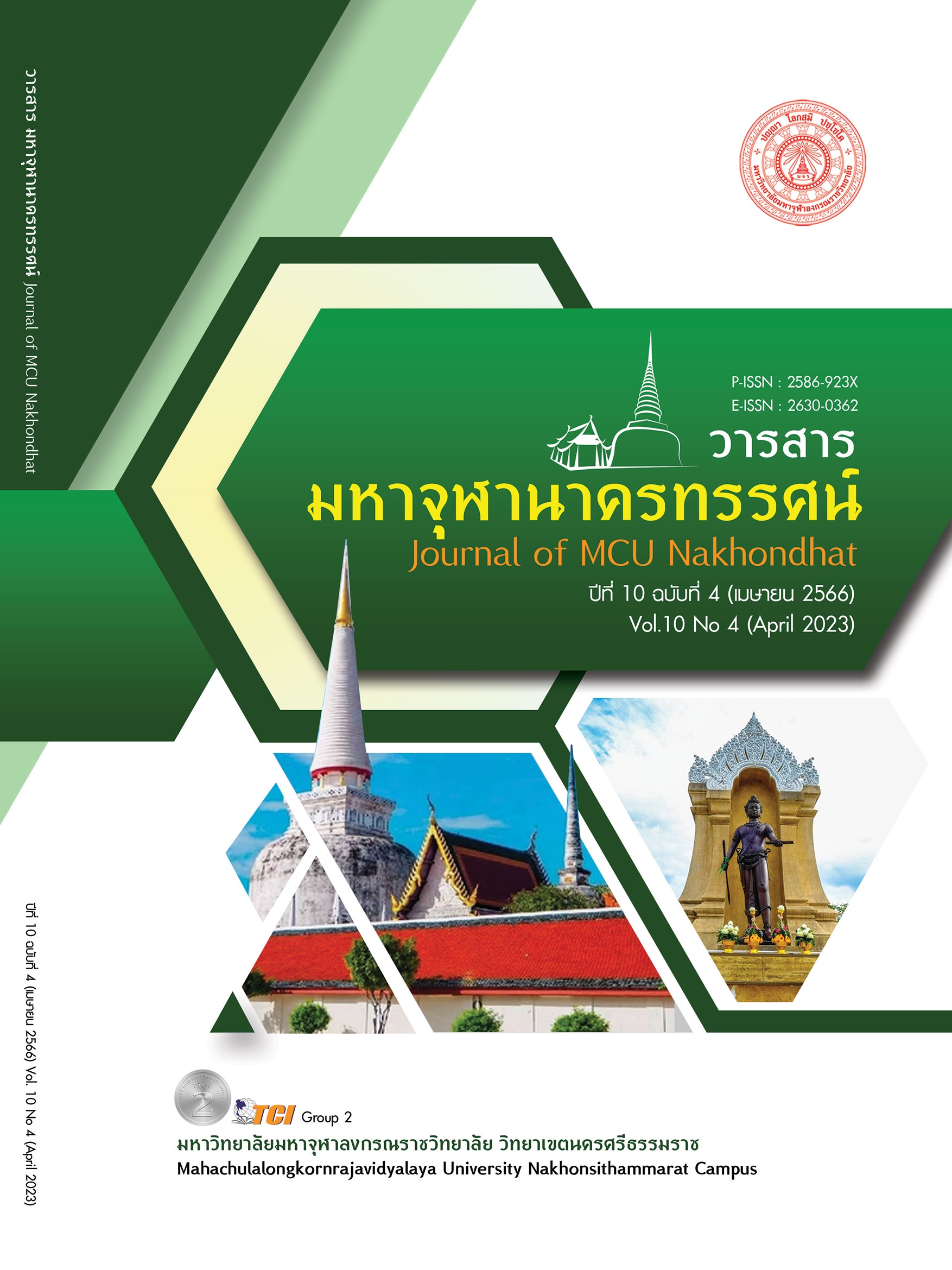GUIDELINES FOR THE DEVELOPMENT OF SCHOOL ADMINISTRATION SKILLS IN THE AGE OF THAILAND 4.0 UNDER UDON THANI PRIMARY EDUCATION SERVICE AREA OFFICE
Main Article Content
Abstract
The purpose of this research article was: 1) to study guidelines for developing school administration skills in the age of Thailand 4.0 under Udon Thani Primary Education Service Area Office, and 2) to evaluate the guidelines for developing school administration skills in the age of Thailand 4.0 under Udon Thani Primary Education Service Area Office. mixed method research. The research studies and analyzes the documents, principles and methodologies in a qualitative way. in order to determine the study method and use it as a guideline for studying. The method of conducting research is divided into 2 steps. Step 1: to study guidelines for developing school administration skills in the age of Thailand 4.0 by using the semi-constructed interview. The experts were five people chosen by using purposive sampling. The data were analyzed by using the qualitative data to classify the data into categories according to the 6 conceptual frameworks, they are 1) Human skills, 2) Technical skills, 3) Communication skills, 4) Technology skills, 5) Conceptual skills, and 6) Innovative skills. Analyze the data by using the qualitative data to classify the data into categories according to the issues and interpret them according to the conceptual framework. The results were as follows: Obtained 39 guidelines for developing school administration skills in the age of Thailand 4.0. and 2) Guidelines assessment results for developing school administration skills in the age of Thailand 4.0. Five experts were chosen by purposive sampling. The data were analyzed by frequency, percentage, mean and standard deviation. The school administration skills in the age of Thailand 4.0 assessment were conducted in 4 approaches: utility, appropriateness, feasibility and congruity. The results were as follows: Overall, it was at the highest level in all aspects.
Article Details

This work is licensed under a Creative Commons Attribution-NonCommercial-NoDerivatives 4.0 International License.
References
กนกอร สมปราชญ์. (2560). ภาวะผู้นําและภาวะผู้นําการเรียนรู้สําหรับผู้บริหารสถานศึกษา. (พิมพ์ครั้งที่ 2). ขอนแก่น: มหาวิทยาลัยขอนแก่น.
ก้องณเรนทร์ พลซา. (2561). กลยุทธ์การพัฒนาทักษะผู้บริหารสถานศึกษาในศตวรรษที่ 21 ของ สถานศึกษาสังกัดสำนักงานเขตพื้นที่การศึกษาประถมศึกษาในจังหวัดเลย. ใน วิทยานิพนธ์ปริญญา ครุศาสตรปรัชญาดุษฎีบัณฑิต สาขาวิชาการบริหารการศึกษา. มหาวิทยาลัยราชภัฏอุดรธานี.
เนาวรัตน์ เยาวนาถ. (2562). แนวทางการพัฒนาภาวะผู้นำเชิงนวัตกรรมของผู้บริหารสถานศึกษา สังกัดสำนักงานเขตพื้นที่การศึกษาประถมศึกษากำแพงเพชร เขต 2. ใน วิทยานิพนธ์ปริญญาครุศาสตรมหาบัณฑิต สาขาวิชาการบริหารการศึกษา. มหาวิทยาลัยสุโขทัยธรรมาธิราช.
บุญชม ศรีสะอาด. (2556). วิธีการทางสถิติสำหรับการวิจัย. (พิมพ์ครั้งที่ 7). กรุงเทพมหานคร: สุวีริยาสาส์น จำกัด.
บุญชม ศรีสะอาด. (2560). การวิจัยเบื้องต้น. (พิมพ์ครั้งที่ 10). กรุงเทพมหานคร: สุวีริยาสาส์น.
พงษ์ศักดิ์ ขวัญมา. (2558). ทักษะการบริหารที่ส่งผลต่อการบริหารตามแนวคิดโดยใช้โรงเรียนเป็นฐานของผู้บริหารสถานศึกษา สังกัดสำนักงานเขตพื้นที่การศึกษามัธยมศึกษา เขต 8 จังหวัดราชบุรี. ใน วิทยานิพนธ์ครุศาสตรมหาบัณฑิต สาขาวิชาการบริหารการศึกษา. มหาวิทยาลัยราชภัฏหมู่บ้านจอมบึง.
ไพรฑูรย์ สินลารัตน์ และคณะ. (2560). ความเป็นผู้นำทางการศึกษา. (พิมพ์ครั้งที่ 2). กรุงเทพมหานคร: จุฬาลงกรณ์มหาวิทยาลัย.
สมหมาย อ่ำดอนกลอย. (2556). บทบาทผู้บริหารสถานศึกษาในศตวรรษที่ 21. วารสาร บัณฑิตศึกษา มหาวิทยาลัยราชภัฏพิบูลสงคราม, 7(1), 6-7.
สำนักงานเลขาธิการสภาการศึกษา. (2560). แผนการศึกษาแห่งชาติ พ.ศ. 2560 – 2579. (พิมพ์ครั้งที่ 1). กรุงเทพมหานคร: บริษัท พริกหวานกราฟฟิค จำกัด.
สุนทร โครตบรรเทา. (2560). การบริหารการศึกษาหลักการและทฤษฎี (ฉบับปรับปรุง). กรุงเทพมหานคร: ปัญญาชน.
Guskey,T. R. (2000). Evaluation professional development. California: A sage.
Schermerhorn, J. R. (2005). Management. New York: John Wiley & Sons.


